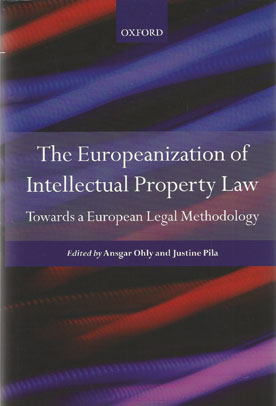
With a particular focus on intellectual property, this work explores some of the key methodological and institutional issues affecting the development of European private law.
Leading experts consider seven key topics, furthering understanding of the impact of Europeanisation on the substance and quality of law, the process of law-making in a Europeanised system, and the requirements for a truly "European" legal order.
The work begins by looking at the making of European Intellectual Property law, covering models of European harmonisation, the pursuit of harmonisation to date, and the creation of the European intellectual property courts. It goes on to examine the impact of European IP law, covering the impact of constitutional rights and values on intellectual property, the impact of general EU law on intellectual property, the relationship between European and national courts, and European legal methodology.
Using intellectual property as a case study in private law Europeanisation, the work generate insights of relevance and application within the fields of intellectual property and private law generally to help develop a European legal methodology.